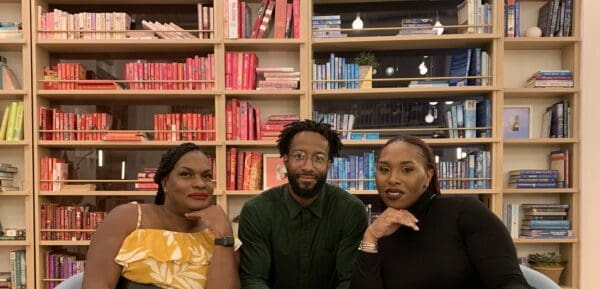Lives At Stake: A Conversation Between Black Straight Men & Black Trans Women

The reason why I decided to focus the first episode of Lives at Stake, a series of moderated TransLash discussions on Facebook Live, on the tension between Black, cis, heterosexual men and Black trans women is because African-American men are a leading threat to the lives of their trans sisters. The facts are devastating.
America, as I wrote in The Grio, has the highest numbers of killings of trans women on the planet with the exception of two countries: Brazil and Mexico. Nine out of 10 those killed in the United States are African-American. In nearly every case where there is a suspect, someone charged or convicted, that person is a Black man. The truth about the reality of Black men’s roles in the deaths of trans women is a deeply disturbing one.
Because TransLash is a growing news source for trans and gender non-conforming people, especially those of color, we simply had to begin with this issue.
From the beginning, my goal was to make this Lives at Stake conversation an authentic one. That’s why I deliberately chose two, cis, heterosexual men, in their 30s, from the working-class neighborhood of East Flatbush rather than well-known voices. One, Randy Davidson, was trans skeptical while the other, Justin Freeman, trans supportive. Randy and Justin were asked to join me and Nala Simone, a trans activist who participated in the controversial The Breakfast Club trans roundtable with Malik Yoba, in a frank exchange.
This desire for a forthright conversation was why I was so disappointed in Randy’s decision to exit the program just one hour before we were set to begin.
Throughout the Black community, we must engage those with different thoughts and perspectives if we are going to save the lives of Black trans women. We can’t only be talking to those who feel the exact same way we do, because those who agree with us are not the ones causing the harm.
However Randy’s absence from Friday night’s dialogue is a metaphor for the absence of Black heterosexual men from this discussion overall. And it is why I chose to leave his chair empty on the set as a visual representation of this gap.
Randy’s decision points out a larger dynamic at work cited by Justin on Friday. “For men checking your boys on transphobia,” he said, “could put a target on your back.” This means that men themselves are afraid to police each other on this issue, leaving very little cultural accountability for their actions against trans women. It also underscores the larger cultural backdrop for the crisis of masculinity at this moment.
As long as manhood is grounded in patriarchy—with its essential emphasis on a hierarchy and the domination of others at its core—then Black trans women will continue to lose their lives at a staggering rate.
Yet patriarchy doesn’t work along in this matter. It is twinned with racism. Our turn to the ways in which patriarchy and racism work together during Lives at Stake led Justin to emphasize the Hegelian, “master-slave” philosophical framework into the conversation. Justin’s core point is that many people only feel whole when they control the life and death others. This leaves us in a dark place.
The good news though is that healing is possible. It must begin with Black, cis, heterosexual men acknowledging the harm that they have caused. As Nala put it, “Black cis men need to know that there’s hurt. My life must matter enough for you to say to me, ‘I see you , what is it that you need?’ Black cis men must step up.”
Nala is right which is why we are committed to continuing to have this conversation through Lives at Stake and throughout our channels. Within the first hour, our conversation had garnered thousands of views which underscores that there is a hunger for more of these types of explorations.
Our next Lives at Stake conversation will be a one-on-one interview with ACLU lawyer, Chase Strangio, to unpack the issues in three, October 8, cases before the Supreme Court. Zarda v. Altitude Express, Bostock v. Clayton County and Harris Funeral Homes v. EEOC will determine whether discrimination based on sexual orientation and gender identity are unconstitutional.
I hope that you can join us and spread the word.
TransLash Episode 3 premiered April 12, 2019, at 12:30 PM ET on the TransLash Facebook page. Join the conversation; everyone is welcome to participate.
For the latest on TransLash, please subscribe to our newsletter and follow us Facebook, Instagram and Twitter.
Trans storytelling saves Trans lives. Help us make TransLash Episode 4: The Future of Trans with your monthly or on-time donation today.